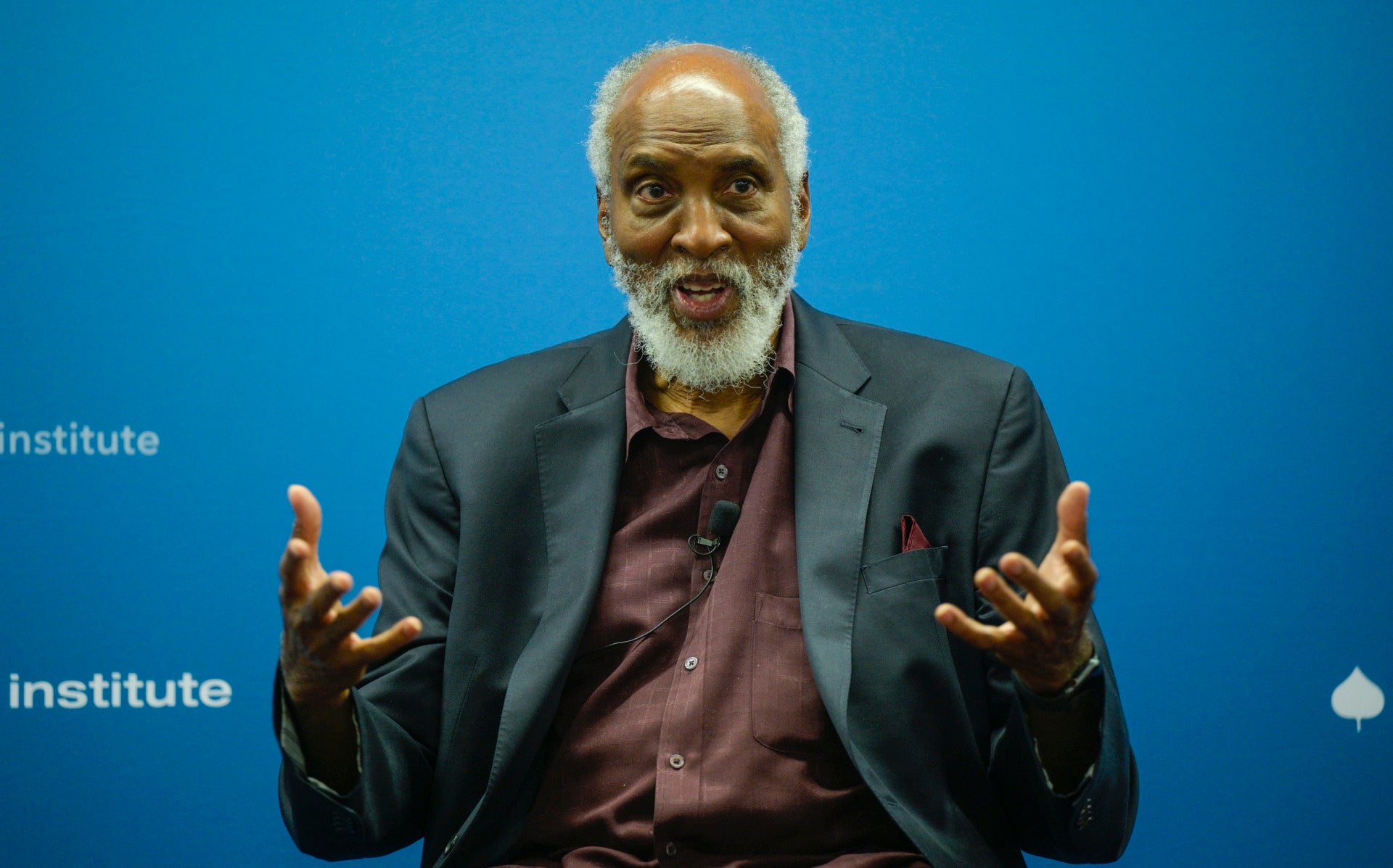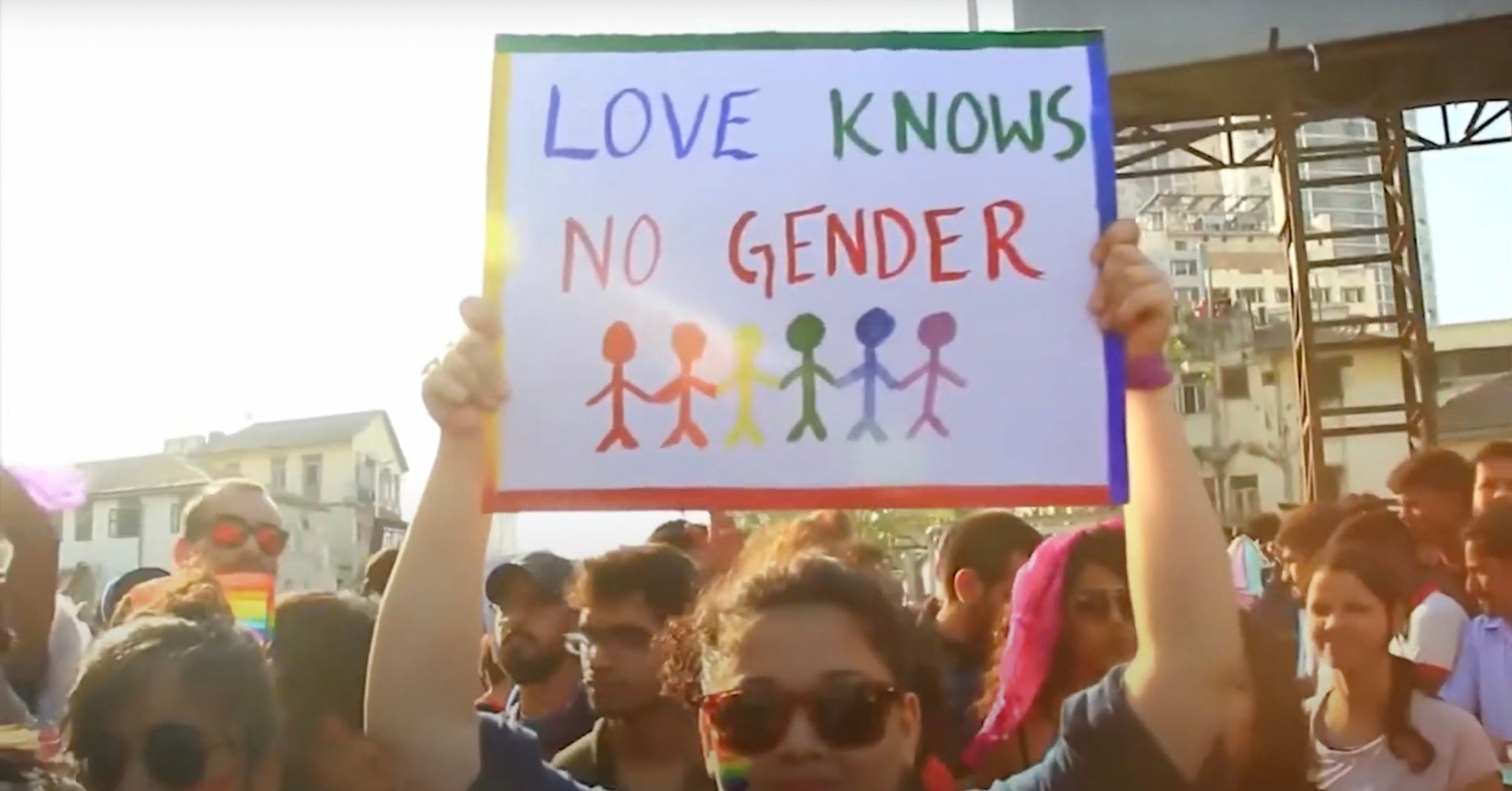I was born in the Philippines, I was raised as a Pentecostal Christian, I attended an evangelical high school at the height of the culture wars, I studied religion in college, I was the only non-Jew at a Jewish seminary, I wrote my Master’s thesis on Jewish-Muslim relations, I co-founded a Muslim leadership institute, I do a lot of work in the black church, and I spend a lot of time working with Catholic nuns. I spend the majority of my time being confusing to people.
My parents spent most of the 1970s living overseas. They did it for the reason that many people leave their homes: To look for economic opportunity and upward mobility. My mom would always say that the reason they survived all their time away from the States was because of the kindness of strangers who welcomed them. And thus it was our obligation to be kind to the stranger, because we too were strangers in a strange land.
So perhaps it is not surprising that I spent much of my career being the only one like me in many rooms. I consider it a rare privilege to have learned how to navigate worlds beyond my own.
That is probably why my friend Sarah, a former AMCLI fellow, emailed me one day to say, “I’m having trouble with this concept of being an ally.”
I guess that was a natural thing to ask me. I didn’t answer her question with best practices or offer quick words of wisdom. I just said, “Come over to my house Friday.”
So she came over. She brought desserts that she had bought after Jummah prayers that day. I ordered pizza. My three kids played in my living room. We sat on my well-worn couch. And in the chaos all around us, we talked about her work as an organizer. She was struggling with this concept of what it meant to be an ally for people whose experiences and challenges were different from her own.
She is a South Asian Muslim who wears hijab and who was organizing around economic social justice and mass incarceration issues in a predominantly African-American community, mostly in the inner-city.
As she talked about this, she talked about a man named Joe, who was a leader of great potential, whose life experience as someone who was formerly incarcerated seemed miles away from her own. She thought that Joe had something special and she was building a relationship him as an ally. After their first meeting, the next time she saw Joe, he asked, “Sarah, how’s it going for you? What’s it like for you to do this work? What can I do to support you?”
Sarah was puzzled by this. She was supposed to be his ally. And yet he cared for what was going on with her. She thought, ‘that’s not the ally dynamic I’m supposed to be in.’ She was supposed to be supporting him as an ally in this fight that deeply impacted him and his community. How could he be concerned about her?
As she explained what felt like a puzzling situation, I began to gain some clarity about my own struggle with what it means to be an ally. So I said, “This whole ally thing. I’m not really sure that I do it. I’m not really sure I know what it means.” She was taken aback — after all, she had come over for advice and support on precisely this question, and I wasn’t offering it.
What I realized is that “ally” is not really a word I have used in the past to describe myself, despite being labeled as such by others. It always felt a little like an itchy and ill-fitting wooly sweater. Allyship itself has been subject to criticism, some of it well-earned, especially when allies wear their status as a shiny badge of honor, or when they abuse it for personal gain, or when they exploit the communities where they have built relationships.
So what I have done, and what I’m so proud of, is that I have built my work and life around a series of relationships with people that I love, not with broad political categories or abstract social concepts. And it’s because I love them that I feel accountable to them. I feel that, out of integrity, I have to act with them and build with them together. Over time, their pain and their triumphs affect me ever more deeply, and they move me to act more urgently and more strategically. Their experiences don’t become mine, and my experiences don’t become theirs, but the gap implied by this binary of “us” and “them” gets blurred and closed.
Today, with this honor, I like to think we’re celebrating my version of what it means to be an ally — to be in this relationship. That itchy sweater of allyship feels a little less uncomfortable, because it is a mantle that I get to help define.
This award represents the recognition that to be an ally is to be embedded in a web of relationships that close the gaps of differences, and that blur the lines between you and I, and between your community and my community, without diminishing the significance of our differences.
It also requires stepping into the fear of the unknown. It’s funny that this award describes me as fearless. I am anything but. I am afraid of two things: flying on airplanes and speaking in public. I’ve flown about 85,000 miles this year alone, and I have probably given a hundred talks. It is not because I’m fearless. It’s because I refuse to be paralyzed by fear. I refuse to let my life be defined by a series of missed opportunities and unrealized potential. So I am not fearless. I am just un-paralyzed, and I think that’s something we can all be.
It is in realizing our own potential and seeing the ability of ourselves and those around us, especially those who have been discounted and discarded, that we can build and transform our communities into beautiful and resilient ones. That is what my work has allowed me to be a part of. This process is about unlocking the abundance of this incredibly beautiful, talented, phenomenally joy-filled community of thoughtful, courageous people. We often forget that because of the weight of the challenges that it faces. But the American Muslim Civic Leadership Institute has enabled me to find my people and to expand my circle of relationships and concerns. And I am grateful to the fellows of AMCLI for being my people and for letting me be theirs.
I believe that’s what Joe was inviting Sarah to do. He wanted to be treated like a whole and fully capable human being in a mutual, reciprocal relationship with another person. He wanted a sense of agency. He wanted to be useful, to meet another person who might be unlike him in many ways, and uncover the ways in which they are powerfully and inter-connectedly one. He did not want to be a political category in someone else’s abstract construction of social change. He didn’t want to be someone’s project. He wanted to build a relationship and invite her to become his people.
“So I don’t know how to be an ally the way that you’re talking about it,” I told Sarah. “But I know that if you show up, if you listen, if you remember the things that people talk about, if you care about those people, and if you are vulnerable and humble enough to allow them to care about you as well, if you don’t see them as being deficient, and you don’t see yourself as being superior, and if you see them as an end in and of themselves, then it won’t matter what words you use to describe your work. You will have done the one thing that the human soul yearns for: To transcend the narrowness of your own self, and be powerfully and meaningfully in relationship with someone else.”
That to me is what it means to be an ally. That is what I hope all of us can do: to face our fears, to not be prisoners of paralysis, to step into relationships that challenge us, and to unlock the abundance that surrounds us, so we can build on the legacies we have inherited, and we can build a world worth passing on to those that come after us.
Brie Loskota received the inaugural 2016 Fearless Ally Award from the El-Hibri Foundation for demonstrating courageous leadership working for the inclusion of American Muslim communities. She is the co-founder of the American Muslim Civic Leadership Institute (AMCLI), a program of the Center for Religion and Civic Culture at the University of Southern California, where she served as executive director. She also joined IAP as a Fellow for Religious Literacy from March 2020- August 2021. The prize money from the award was donated to the AMCLI program. This piece is drawn from her acceptance speech, which has been slightly edited.

